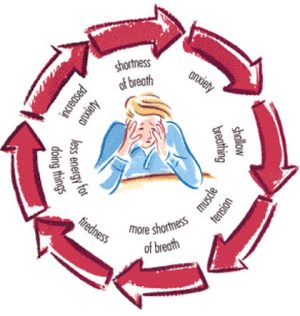What is persistent dizziness?
First, before talking about the causes of dizziness, we will explain what dizziness is. It is a short feeling of dizziness and lightness that occurs in the head as a result of slow blood flow, and it has several causes.
Causes of dizziness
First: Problems associated with the eyes, whether long or short-sighted, as they lead to dizziness.
Second: One of the main causes of dizziness is inflammation of the nerve cells responsible for body balance.
Third: Low blood sugar is one of the causes of dizziness that is very common among people
Fourth: Anemia resulting from a decrease in the percentage of hemoglobin in the body makes a person dizzy.
Fifth: Sudden movements of the body lead to dizziness. Such as suddenly moving the head, spasms that affect the neck muscles, and standing up immediately when waking up from sleep, all of these are causes of dizziness.
Sixth: Exhaustion, fatigue, and long sleepless nights.
Seventh: Excessive consumption of all kinds of alcohol makes a person dizzy.
Eighth: An imbalance in the body’s hormones is one of the important causes of dizziness.
Ninth: Inflammation of one of the human body organs sometimes causes dizziness.
Tenth: Taking some drugs leads to a feeling of dizziness.
Eleven: Low blood pressure causes rapid dizziness, because it prevents blood from reaching the brain.
Twelve: Dizziness occurs when someone suffers from swelling of the auditory nerve.
Thirteen: Standing and looking down from high places leads to dizziness.
Fourteen: Traveling by air, sea, or climbing high altitudes leads to feeling dizzy, in an unusual way.
Fifteen: The constant headaches that affect humans, as well as migraines, cause dizziness.
Sixteen: Dizziness accompanies some diseases if they affect a person. Such as epilepsy, heart disease, kidney disease, and high blood pressure.
Seventeen: Dizziness sometimes occurs as a result of a severe head injury, for example as a result of an accident or a strong blow that affects the brain.

